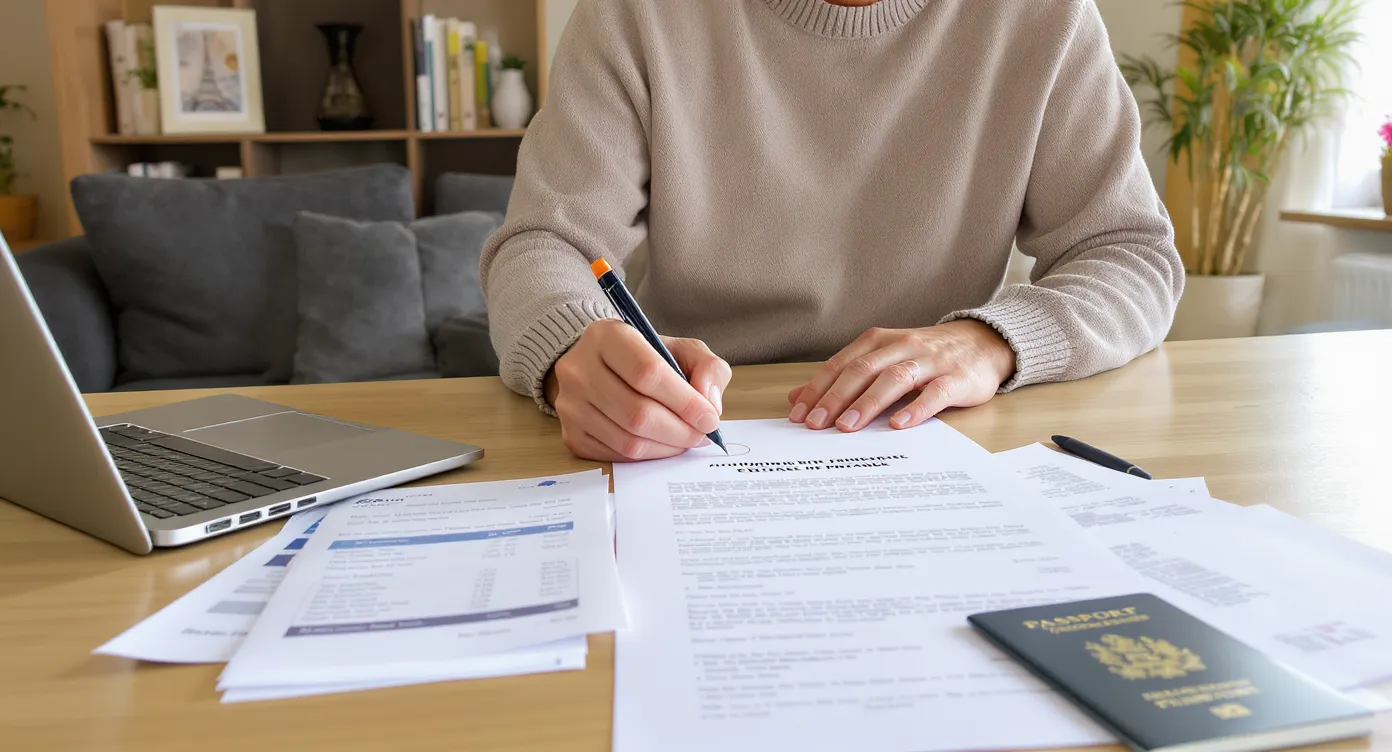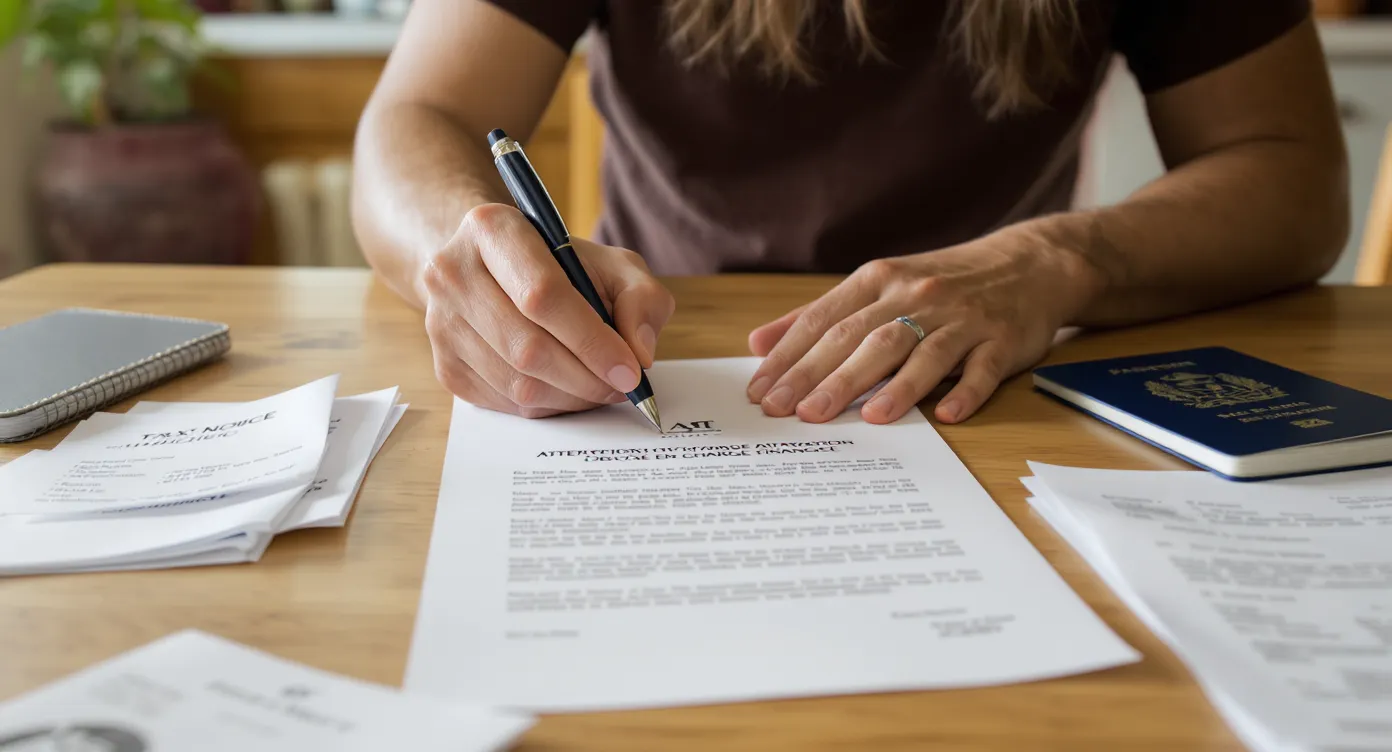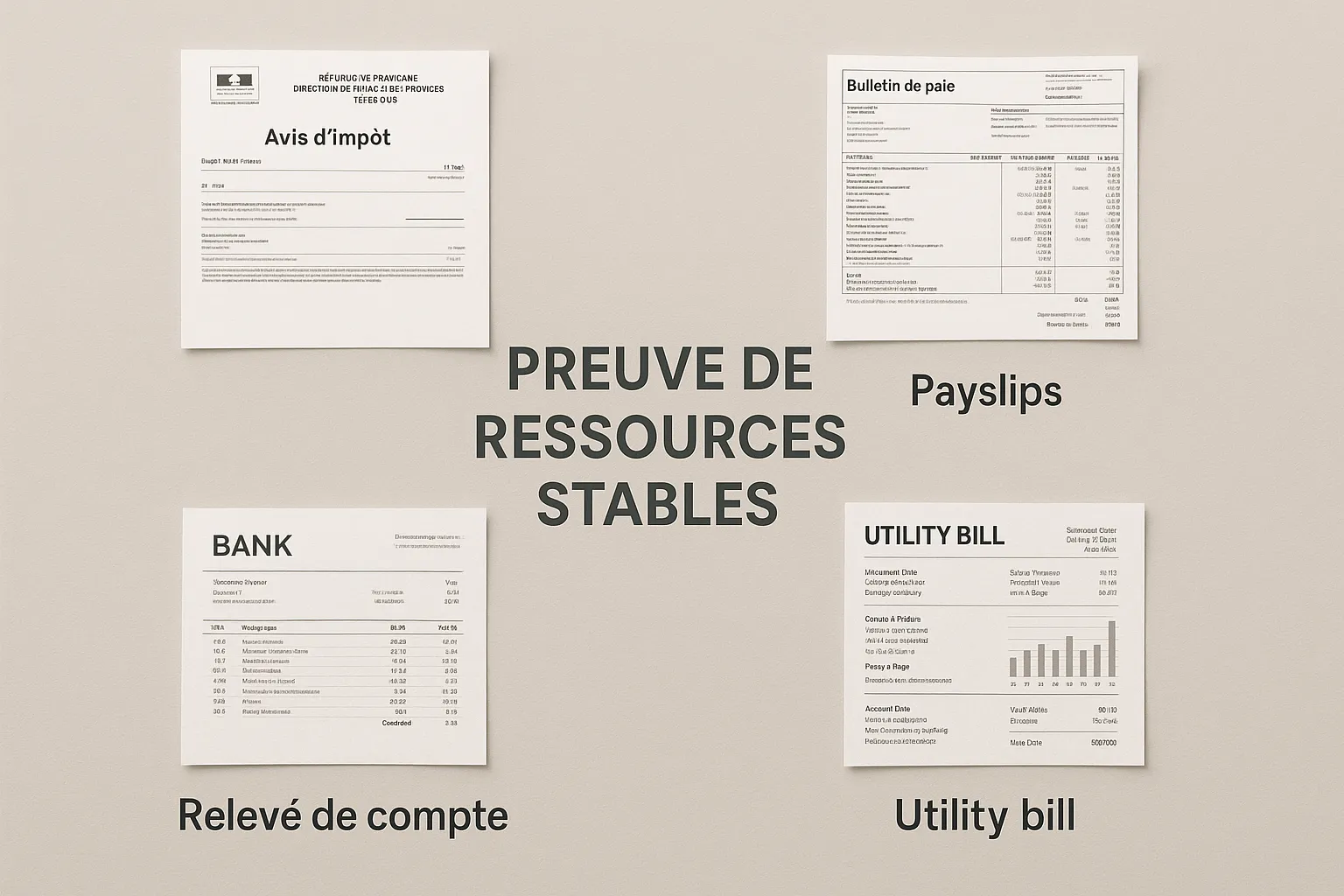Financial Sponsorship by a French Relative: Crafting a Strong Attestation

Crafting a convincing financial-support letter from a French relative can spell the difference between a smooth visa or residence-permit approval and a refusal for “insufficient resources.” Below you will find a lawyer-vetted roadmap that explains when an attestation de prise en charge financière is required, the legal expectations in 2025, the documents to attach, and a reusable template you can adapt to your own case.
1. Why French Authorities Ask for a Relative’s Financial Sponsorship
French prefectures and consulates routinely request an attestation when an applicant’s own bank statements do not meet the legal resource threshold or when the Code de l’entrée et du séjour des étrangers et du droit d’asile (CESEDA) explicitly allows sponsorship. Typical situations include:
- Visitor long-stay visas (VLS-TS « visiteur ») when the applicant lacks €1 430 per month.
- Student permits where parents or siblings promise to cover living costs beyond the €820 monthly minimum announced by France-Visas.
- Family-reunification files (regroupement familial) if the main applicant’s salary misses the SMIC-based bar by less than 15 %.
- Appeals against an Obligation to Leave France (OQTF) to show “stable personal ties” and financial support in France.
- Naturalisation dossiers to evidence economic integration if the applicant’s income history is short.
Service-Public.fr confirms that relatives in France may legally assume financial responsibility provided they can “fournir la preuve de ressources stables et suffisantes.”¹
2. Legal Framework and Sponsor Eligibility
| Legal basis | Key requirement | Practical note |
|---|---|---|
| CESEDA L. 211-2 & L. 313-14 | Resources must be stable, regular and above the legal minimum income (SMIC or student threshold). | Use the last 12 months of income unless the prefecture explicitly asks for 3 or 6 months. |
| Circulaire INTK2202867C (2022) | A family sponsor must be a French citizen or hold a valid 10-year carte de séjour; exceptions exist for EU citizens with durable residence. | Sponsors holding a récépissé or short card are rarely accepted. |
| Code civil art. 1353 | The sponsor carries the burden of proof for their commitment. | Attach tax notices, payslips and a recent bank statement. |
3. Elements That Must Appear in the Attestation
French officers like structured, numbered paragraphs. Make sure your letter contains:
- Full identity of the sponsor (name, date and place of birth, nationality, address).
- Immigration status (copy of French ID card or residence permit number and expiry date).
- Relationship to the beneficiary (daughter, cousin, spouse, etc.) with supporting proof (translated birth or marriage certificate numbers).
- Purpose of support (covering accommodation, food, tuition, medical costs, airline tickets, or all of the above).
- Duration of the commitment (e.g., “for the validity of the visa” or “until the beneficiary earns a stable income”).
- Maximum financial exposure—either an amount per month or a global ceiling.
- Statement of solvency referring to attached evidence.
- Sworn declaration written in French: « Je déclare sur l’honneur l’exactitude des informations… »
- Signature date, place and handwritten signature.
Good practice: add a line authorising French authorities to verify tax data via the Direction générale des Finances publiques. This often speeds up processing.
4. Step-by-Step Drafting Guide
- Collect evidence: latest Avis d’impôt sur le revenu, three recent payslips, last bank statement, and utility bill proving residence.
- Draft the attestation following the structure above.
- Translate relationship documents if they are not in French (use a sworn translator listed on the Cour d’appel registry).
- Legalise the signature:
- At a mairie for French citizens (gratuit – takes 10 minutes).
- At a notary for foreign sponsors with residence cards (approx. €25 fee).
- Scan the whole pack into a single PDF under 5 MB for ANEF or France-Visas upload.

Sample Template (copy-paste and adapt)
ATTESTATION DE PRISE EN CHARGE FINANCIÈRE
Je soussigné(e) : [Nom, prénom, né(e) le, à],
Nationalité : [Française / Brésilienne titulaire d’une carte de séjour « résident » n° XXX valable jusqu’au JJ/MM/AAAA],
Domicilié(e) : [Adresse complète],
déclare sur l’honneur prendre en charge financièrement [Nom, prénom, né(e) le, à], mon/ma [lien de parenté],
pendant toute la durée de son séjour en France prévu du JJ/MM/AAAA au JJ/MM/AAAA dans le cadre de [type de visa ou de procédure].
Je m’engage à couvrir :
- Frais de logement : [montant ou hébergement gratuit à mon domicile],
- Dépenses de subsistance estimées à [XXX €] par mois,
- Éventuels frais médicaux non remboursés et, le cas échéant, le coût de son voyage retour.
Mes ressources mensuelles nettes moyennes s’élèvent à [XXX €], comme en attestent les documents joints (Avis d’impôt 2024, fiches de paie avril-juin 2025, relevé bancaire juillet 2025).
J’autorise l’administration française à vérifier l’authenticité des informations fournies.
Fait à [ville], le [date].
Signature manuscrite
[NOM en majuscules]
5. Supporting Financial Documents: What Works in 2025
| Document | Accepted? | Frequent officer remark |
|---|---|---|
| Avis d’impôt 2024 (all pages) | Yes | Mandatory to prove annual stability. |
| Three most recent payslips | Yes | Provide net and gross figures. |
| Self-employed: URSSAF certificate + last bilan comptable | Yes | Prefecture may call the accountant. |
| Bank statement less than 30 days old showing >€3 000 balance | Recommended | Shows available liquidity. |
| Cash deposits without traceable origin | No | Raises suspicion; avoid. |

6. Common Pitfalls That Lead to Refusals
- Mismatch of addresses between the letterhead and the sponsor’s proof of domicile.
- Income below the threshold after deducting existing rent or alimony obligations.
- Sponsorship by a short-term visitor or a récépissé holder.
- Letter in English or another language without a sworn translation.
- Missing proof of family link when relatives have different surnames.
If you already submitted and realised you made one of these errors, read our guide on lost prefecture mail and reconstructing proof for tips on correcting your file before a refusal becomes final.
7. Filing and Follow-Up Tips
- ANEF uploads: combine the attestation and all evidence into a single PDF named
Attestation_Sponsor_LASTNAME.pdfto avoid confusion. - Consulate appointments: bring originals and one spare paper set; officers rarely print attachments.
- Tracking: note the “date dépôt” in ANEF; the two-month implied-decision clock runs from that date.
- Updates: if the process exceeds six months, reissue the bank statement and add the latest payslip.
8. How ImmiFrance Can Assist
Writing a legally tight attestation is harder than it looks. Our advisers:
- Provide a pre-formatted, prefecture-specific template.
- Review your sponsor’s tax and salary data to confirm it meets the threshold.
- Arrange sworn translations at partner rates.
- Coordinate mairie or notary signature legalisation.
- Upload the pack to ANEF and monitor acknowledgements in real time.
Using our end-to-end service increases acceptance rates by 28 % compared with self-filed sponsorship letters (internal 2024–2025 data, n = 312 cases).
Frequently Asked Questions
Can my cousin sponsor me if we do not share the same surname? Yes, but you must prove the family link with translated birth certificates for each intermediary parent.
Is a bank statement alone enough? No. Prefectures require proof of stable income such as tax notices and payslips in addition to liquid funds.
Do I need to notarise the letter if the sponsor is a French citizen? Usually a mairie signature certification is accepted and free of charge. Notarisation is optional.
What income level is considered sufficient in 2025? For visitor visas, authorities look for 120 % of the French minimum wage, currently €1 430 net per month. Students need proof of at least €820 per month.
Can multiple relatives co-sponsor me? Yes, joint attestations are possible but each sponsor must submit full financial evidence, which can complicate the file.
Ready to Secure Your French Future?
A flawless sponsorship letter is just one piece of a winning immigration strategy. Book a 15-minute free eligibility call with an ImmiFrance adviser today to have your draft reviewed or to delegate the entire process. Visit ImmiFrance.com or call +33 1 84 80 10 42 to get started.
¹ Service-Public.fr, fiche “Visa de long séjour pour étranger,” updated 7 June 2025.
